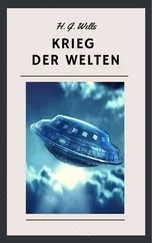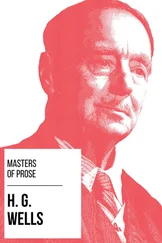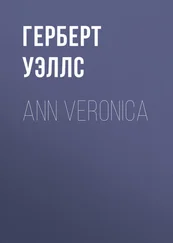with a foolish smile, a still more foolish expression of
earnestness, and a throaty contralto voice. She was noisy and
hilarious and enthusiastic, and her hair was always abominably
done. In the chapel she sang with an open-lunged gusto that
silenced Ann Veronica altogether, and in the exercising-yard
slouched round with carelessly dispersed feet. Ann Veronica
decided that "hoydenish ragger" was the only phrase to express
her. She was always breaking rules, whispering asides,
intimating signals. She became at times an embodiment for Ann
Veronica of all that made the suffrage movement defective and
unsatisfying.
She was always initiating petty breaches of discipline. Her
greatest exploit was the howling before the mid-day meal. This
was an imitation of the noises made by the carnivora at the
Zoological Gardens at feeding-time; the idea was taken up by
prisoner after prisoner until the whole place was alive with
barkings, yappings, roarings, pelican chatterings, and feline
yowlings, interspersed with shrieks of hysterical laughter. To
many in that crowded solitude it came as an extraordinary relief.
It was better even than the hymn-singing. But it annoyed Ann
Veronica.
"Idiots!" she said, when she heard this pandemonium, and with
particular reference to this young lady with the throaty
contralto next door. "Intolerable idiots! . . ."
It took some days for this phase to pass, and it left some scars
and something like a decision. "Violence won't do it," said Ann
Veronica. "Begin violence, and the woman goes under. . . .
"But all the rest of our case is right. . . . Yes."
As the long, solitary days wore on, Ann Veronica found a number
of definite attitudes and conclusions in her mind.
One of these was a classification of women into women who are and
women who are not hostile to men. "The real reason why I am out
of place here," she said, "is because I like men. I can talk
with them. I've never found them hostile. I've got no feminine
class feeling. I don't want any laws or freedoms to protect me
from a man like Mr. Capes. I know that in my heart I would take
whatever he gave. . . .
"A woman wants a proper alliance with a man, a man who is better
stuff than herself. She wants that and needs it more than
anything else in the world. It may not be just, it may not be
fair, but things are so. It isn't law, nor custom, nor masculine
violence settled that. It is just how things happen to be. She
wants to be free--she wants to be legally and economically free,
so as not to be subject to the wrong man; but only God, who made
the world, can alter things to prevent her being slave to the
right one.
"And if she can't have the right one?
"We've developed such a quality of preference!"
She rubbed her knuckles into her forehead. "Oh, but life is
difficult!" she groaned. "When you loosen the tangle in one
place you tie a knot in another. . . . Before there is any
change, any real change, I shall be dead--dead--dead and
finished--two hundred years! . . ."
Part 5
One afternoon, while everything was still, the wardress heard her
cry out suddenly and alarmingly, and with great and unmistakable passion,
"Why in the name of goodness did I burn that twenty pounds?"
Part 6
She sat regarding her dinner. The meat was coarse and
disagreeably served.
"I suppose some one makes a bit on the food," she said. . . .
"One has such ridiculous ideas of the wicked common people and
the beautiful machinery of order that ropes them in. And here
are these places, full of contagion!
"Of course, this is the real texture of life, this is what we
refined secure people forget. We think the whole thing is
straight and noble at bottom, and it isn't. We think if we just
defy the friends we have and go out into the world everything
will become easy and splendid. One doesn't realize that even the
sort of civilization one has at Morningside Park is held together
with difficulty. By policemen one mustn't shock.
"This isn't a world for an innocent girl to walk about in. It's
a world of dirt and skin diseases and parasites. It's a world in
which the law can be a stupid pig and the police-stations dirty
dens. One wants helpers and protectors--and clean water.
"Am I becoming reasonable or am I being tamed?
"I'm simply discovering that life is many-sided and complex and
puzzling. I thought one had only to take it by the throat.
"It hasn't GOT a throat!"
Part 7
One day the idea of self-sacrifice came into her head, and she
made, she thought, some important moral discoveries.
It came with an extreme effect of re-discovery, a remarkable
novelty. "What have I been all this time?" she asked herself,
and answered, "Just stark egotism, crude assertion of Ann
Veronica, without a modest rag of religion or discipline or
respect for authority to cover me!"
It seemed to her as though she had at last found the touchstone
of conduct. She perceived she had never really thought of any
one but herself in all her acts and plans. Even Capes had been
for her merely an excitant to passionate love--a mere idol at
whose feet one could enjoy imaginative wallowings. She had set
out to get a beautiful life, a free, untrammelled life,
self-development, without counting the cost either for herself or
others.
"I have hurt my father," she said; "I have hurt my aunt. I have
hurt and snubbed poor Teddy. I've made no one happy. I deserve
pretty much what I've got. . . .
"If only because of the way one hurts others if one kicks loose
and free, one has to submit. . . .
"Broken-in people! I suppose the world is just all egotistical
children and broken-in people.
"Your little flag of pride must flutter down with the rest of
them, Ann Veronica. . . .
"Compromise--and kindness.
"Compromise and kindness.
"Who are YOU that the world should lie down at your feet?
"You've got to be a decent citizen, Ann Veronica. Take your half
loaf with the others. You mustn't go clawing after a man that
doesn't belong to you--that isn't even interested in you. That's
one thing clear.
"You've got to take the decent reasonable way. You've got to
adjust yourself to the people God has set about you. Every one
else does."
She thought more and more along that line. There was no reason
why she shouldn't be Capes' friend. He did like her, anyhow; he
was always pleased to be with her. There was no reason why she
shouldn't be his restrained and dignified friend. After all,
that was life. Nothing was given away, and no one came so rich
to the stall as to command all that it had to offer. Every one
has to make a deal with the world.
It would be very good to be Capes' friend.
She might be able to go on with biology, possibly even work upon
the same questions that he dealt with. . . .
Perhaps her granddaughter might marry his grandson. . . .
It grew clear to her that throughout all her wild raid for
independence she had done nothing for anybody, and many people
had done things for her. She thought of her aunt and that purse
that was dropped on the table, and of many troublesome and
ill-requited kindnesses; she thought of the help of the Widgetts,
of Teddy's admiration; she thought, with a new-born charity, of
her father, of Manning's conscientious unselfishness, of Miss
Miniver's devotion.
"And for me it has been Pride and Pride and Pride!
Читать дальше












